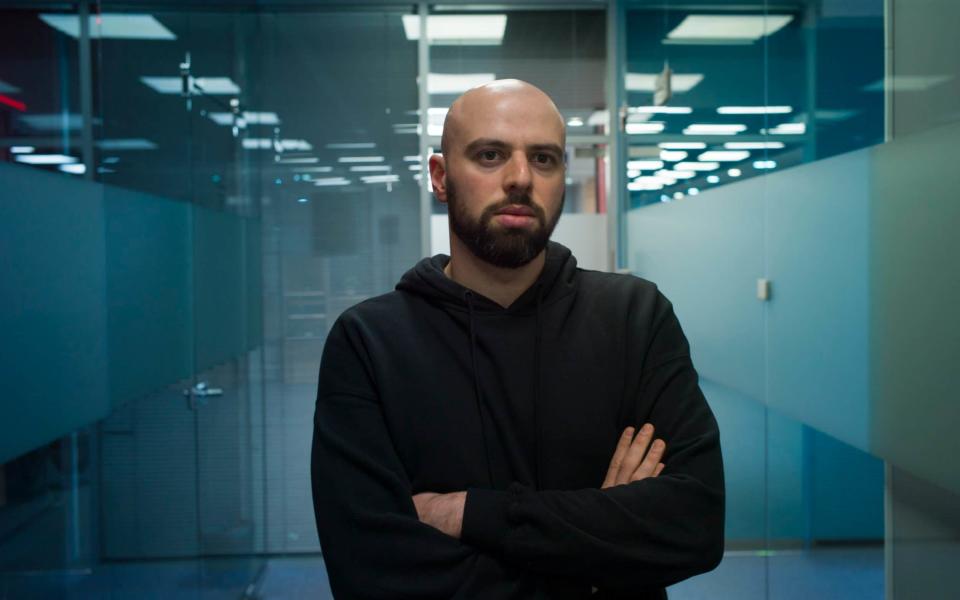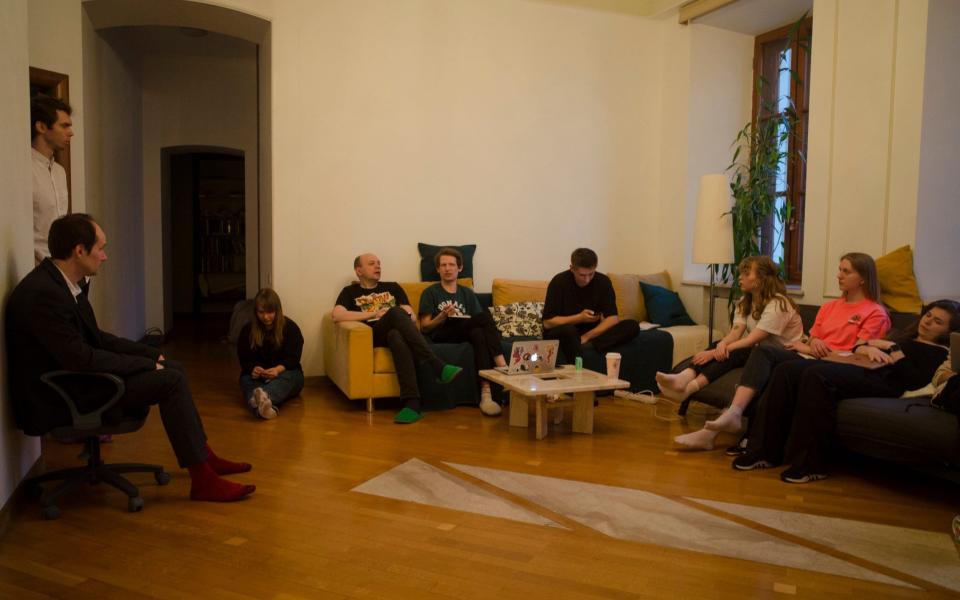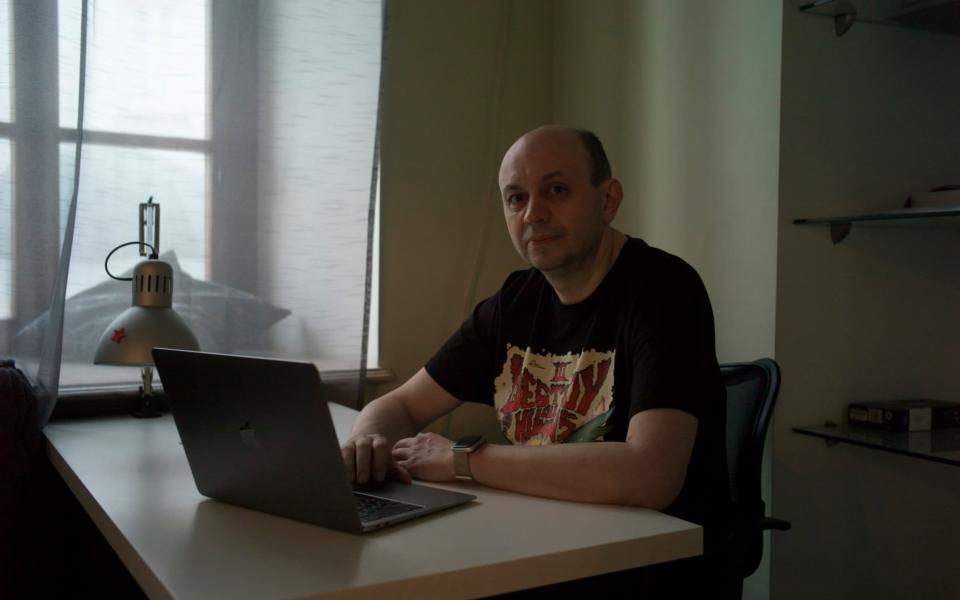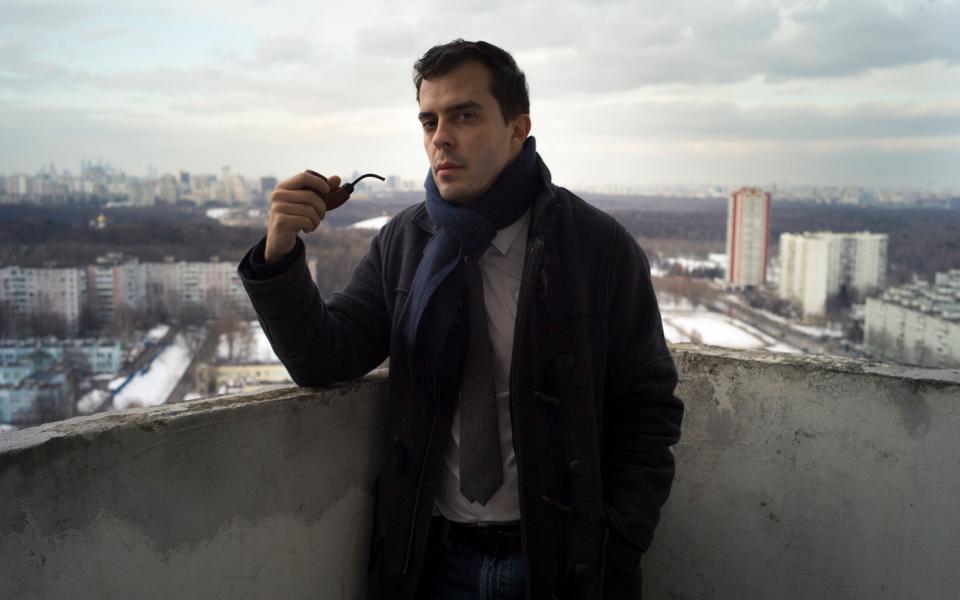Russia cracks down on new independent media after tale of Putin's 'lovechild' riles Kremlin

- Oops!Something went wrong.Please try again later.
Editors at Proyekt, a small Russian website, were jittery as they hit the button to publish their latest investigation - one of their most provocative to date.
The team had been researching something completely different when they stumbled upon an incredible story: a secret lover of Vladimir Putin and a teenage daughter who looked incredibly like the Russian president.
They knew the consequences would be drastic, and they were right. Since the exclusive was published, some sources no longer take the team’s calls. Emails and social media accounts are often hacked. Some of the journalists were followed.
“We have been through this before, and we knew what was going to happen,” Mikhail Rubin, Proyekt’s deputy editor-in-chief, told The Telegraph.
“What we do is considered regular journalism around the world, but in the eyes of the Kremlin we’re doing something outrageous.”

A great number of high-placed sources that Mr Rubin acquired in his four years working as a Kremlin pool reporter no longer take his calls as the website “is now seen as an enemy” within the Kremlin walls.
Proyekt is one of a handful of plucky new independent outlets challenging the Kremlin and trying to fill the gap left after Mr Putin dismantled Russia’s previously vibrant newsrooms.
They’ve had some success, from identifying the culprits behind the poisoning of ex-Russian spy Sergei Skripal in Salisbury to reporting on nationwide protests sparked by opposition figure Alexei Navalny’s arrest earlier this year.
But that success has come with a price.
Veteran reporter Veronika Kutsyllo has lost count of the number of times the police have raided the offices of her employer MBK Media, a news website funded by exiled Russian tycoon Mikhail Khodorkovsky.
Just two weeks ago, the police came by and seized four press vests without offering an explanation.
“This has become routine,” Ms Kutsyllo, MBK Media’s editor-in-chief, told the Telegraph.


She previously worked at Kommersant, the publishing house of Russia’s leading independent newspaper, but quit in 2011 after her editor was fired for their election coverage.
Now she is subject to regular police visits, but counts herself lucky.
“It’s risky now but I’m not ashamed of what I do,” she said. “That’s a rare thing for journalists in Russia nowadays, and I’m in a position to give people who work for us a chance to do the same thing.”
Small websites such as MBK Media were a particularly vital source of independent reporting during the nationwide unrest that swept Russia earlier this year following Mr Navalny’s arrest.
Among the most cited on social media was Media Zona - partly because its editor-in-chief Sergei Smirnov became part of the story.
The day after its live blog on Mr Navalny’s key court hearing, which attracted almost 700,000 views, Mr Smirnov was sentenced to 25 days in custody for retweeting a joke about himself in what the prosecutors deemed a call for illegal rallies.

The irony wasn’t lost on Mr Smirnov, a Russian political journalist known for his witty Twitter feed.
The brainchild of two members of punk band Pussy Riot who wanted to shed light on the cruelties of the Russian prison system, Media Zona has become Russia’s most prominent authority on the absurd political trials held by the Kremlin.
With Mr Putin’s regime cranking up the pressure on independent media outlets, many are trying to find ways to protect themselves from censorship.
Large financial reserves is one potential route to safety.
Media Zona, for example, launched a crowdfunding campaign in 2017 - something that no other Russian media had done before.
They raised 1 million rubles (£10,000) in the first month, a colossal sum for a newsroom in Russia that typically runs on a shoe-string budget. They now receive 3.8 million rubles (£36,000) in donations every month.
Another option is getting foreign outlets to take on the trickiest parts of a controversial investigation.
The Insider, for example, teamed up with the Europe-based forensic investigative group Bellingcat to identify the Russian intelligence agents believed to be behind the Salisbury poisoning and that of Mr Navalny.
Both investigations drew heavily from Russian phone logs and flight manifests. They are widely available for a fee online but The Insider left it to Bellingcat to look for the data, which could have put the Russian outlet in breach of the law.

“This makes things much safer for us,” The Insider’s editor-in-chief Roman Dobrokhotov said.
Independent Russian journalists like Mr Dobrokhotov often wonder out loud why the Kremlin has not shut down everyone yet.
But while such websites have an audience among the tech-savvy young electorate in major cities, they pose less of a risk to Mr Putin’s popularity nationally, with most people in Russia’s provinces still getting their news from state-owned television channels.
And as September’s parliamentary elections get nearer, state media have begun to paint independent newsrooms as enemies or spies.
MBK Media’s Ms Kutsyllo fears that Russia media are in for “carpet bombing” but says she isn’t going anywhere.

“If this (government) machine decides to destroy someone, it will. I still have the opportunity to do good journalism, and when it becomes too dangerous, well, I’ll see what I do.”
However, Mr Smirnov says the Kremlin is too smart to obliterate the entire media landscape in a heavy-handed manner.
“It makes more sense for them to target one or two random victims and keep the rest of us on tenterhooks.”

